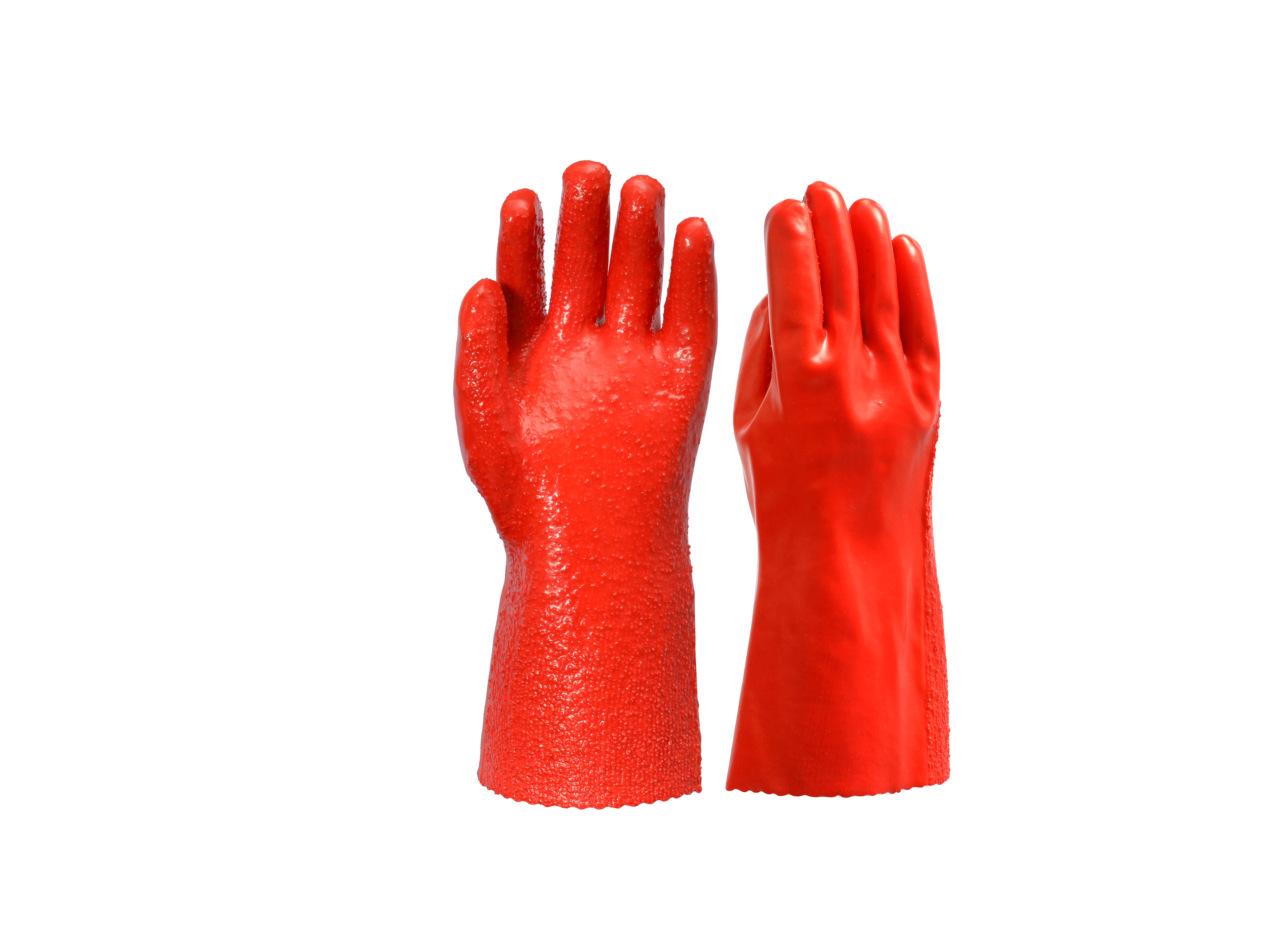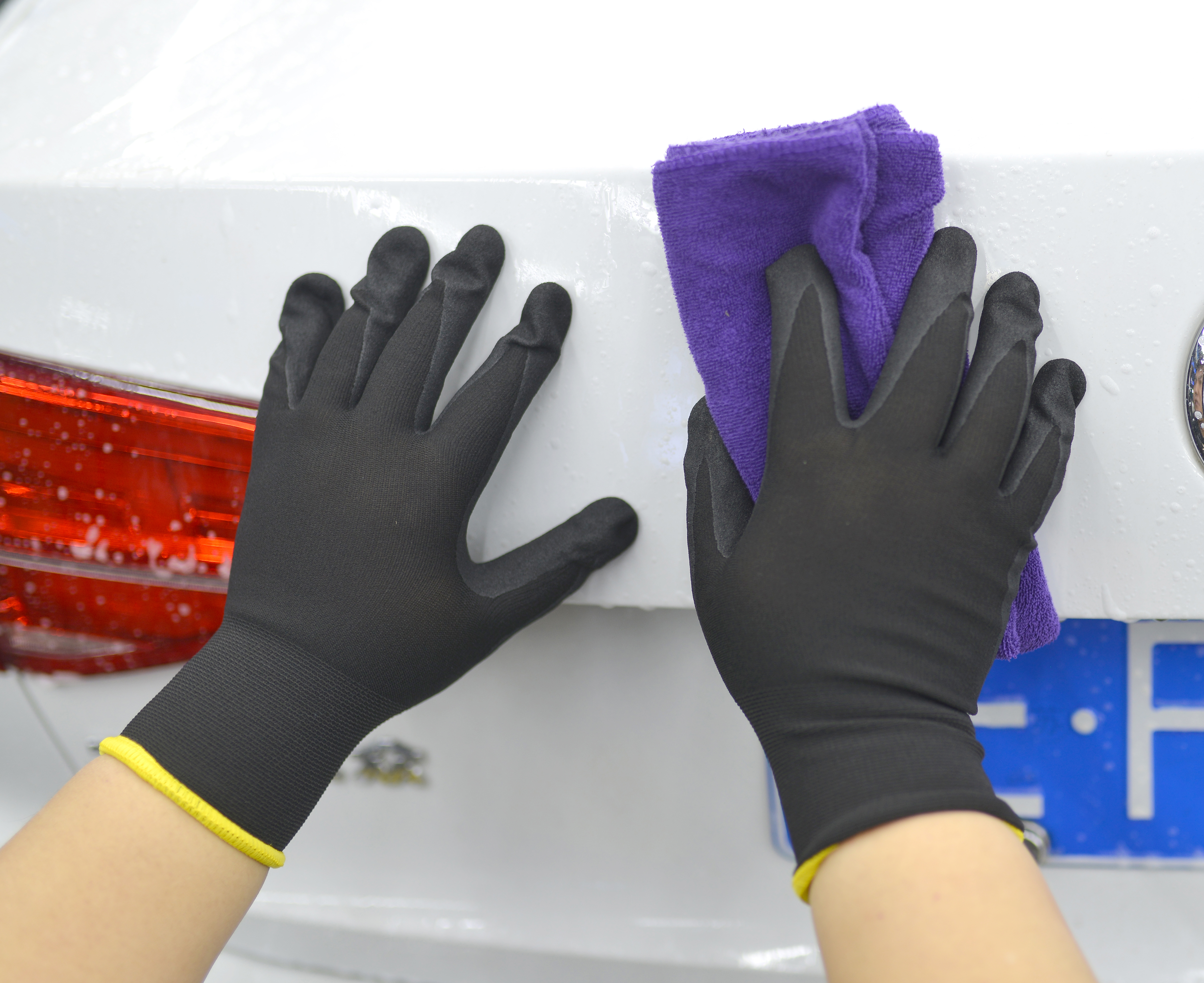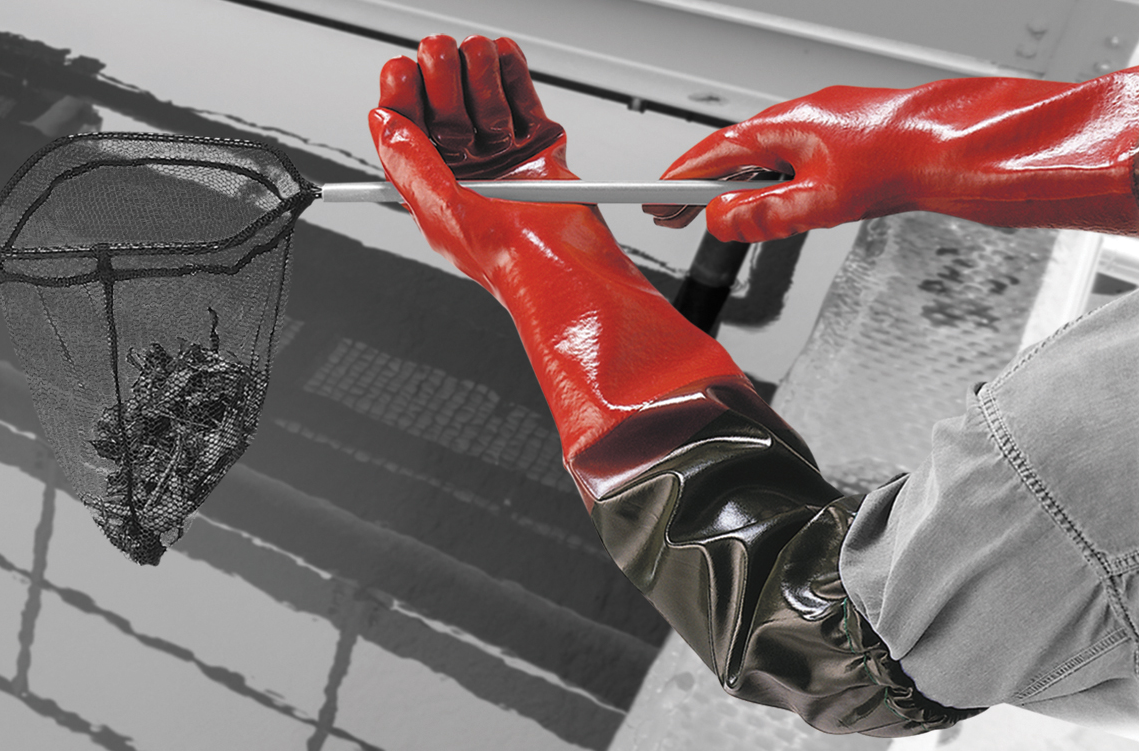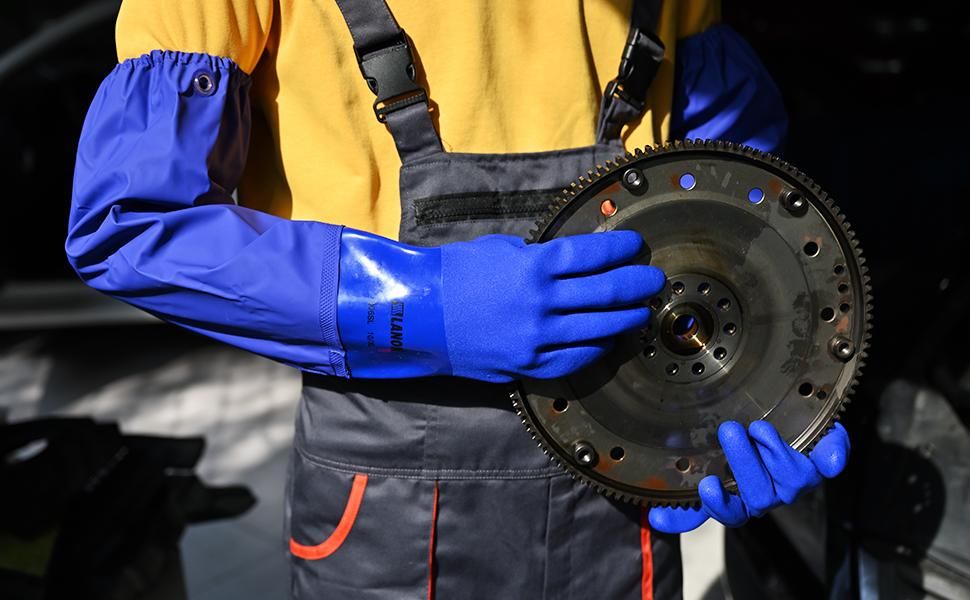Whether in daily life or the workplace, PVC and PU coated gloves are essential tools for hand protection, playing a crucial role. However, the two commonly used coatings, PVC and PU, often create a dilemma when choosing. They may look similar, but they have distinct advantages and disadvantages, with internal performance and suitable applications being quite different!
Choosing the right gloves can ensure your hands are protected from accidents. Choosing the wrong ones not only wastes money but could expose your hands to risk. In this article, we will thoroughly break down the differences between PVC gloves and PU coated gloves, helping you make an informed decision.

What Are PVC Gloves?
PVC gloves are synthetic material gloves made by combining thermoplastic polyvinyl chloride with various additives. Known for their structural stability, chemical resistance, and waterproof and oil-resistant properties, they are considered one of the more cost-effective protective items. PVC gloves are commonly used in industries such as manufacturing, construction, chemicals, oil, and natural gas.
Advantages of PVC Gloves
PVC gloves do not absorb water, giving them strong waterproof capabilities, making them ideal for wet or muddy environments.
Polyvinyl chloride effectively resists acids, alkalis, alcohols, cleaners, and other chemicals, and can block oils such as motor oil, lubricants, and diesel, making them great for handling hazardous substances.
Compared to other gloves, PVC gloves are thicker and more durable, making them ideal for heavy-duty work environments like handling, construction, and mechanical maintenance.
PVC gloves maintain a certain degree of flexibility in low temperatures, unlike other gloves that may become brittle and crack, making them suitable for extreme weather conditions.
PVC gloves are relatively inexpensive due to the lower cost of raw materials.
Disadvantages of PVC Gloves
PVC gloves are not breathable, and wearing them for long periods can cause sweating, discomfort, and a feeling of dampness and heat.
Compared to other gloves, PVC gloves are relatively stiff and thick, which can limit finger mobility and make fine motor tasks difficult.
PVC is a non-biodegradable plastic material that can harm the environment if not disposed of properly.
Some individuals may experience skin allergies when wearing PVC gloves, especially those with sensitive or allergic skin.
When exposed to high temperatures and sunlight for long periods, PVC gloves can soften, break down, or lose their elasticity.

What Are PU Coated Gloves?
PU (Polyurethane) coated gloves are protective gloves made by weaving cotton, knit, nylon, or other materials and then coating them with polyurethane. They offer exceptional sensitivity, excellent grip, and superior flexibility, making them ideal for industries such as electronics, assembly, and light manufacturing that require precision and sensitivity.
Advantages of PU Coated Gloves
PU coated gloves are thinner, softer, and more form-fitting, providing high dexterity and flexibility, making them perfect for tasks requiring precision, such as electronics assembly and inspection.
The polyurethane coating provides a slightly sticky surface, ensuring a firm grip in dry or mildly oily environments, preventing tools from slipping and avoiding unnecessary injuries.
PU gloves are generally more breathable than PVC gloves, using breathable materials to reduce hand sweating and improve air circulation, making them more comfortable for long periods of wear.
Although thinner than nitrile or latex-coated gloves, PU-coated gloves still offer decent abrasion resistance and can withstand moderate friction.
Disadvantages of PU Coated Gloves
PU is not resistant to strong acids, alkalis, solvents, and other chemicals, so it is not suitable for use in chemical environments.
PU gloves can only resist light oil stains; they are prone to penetration when exposed to large amounts of oils, lubricants, or grease.
Prolonged exposure to high temperatures or sunlight can soften, melt, or release harmful gases from PU coatings, so they are not suitable for high-temperature environments.
In low-temperature environments, PU can become stiff and brittle, affecting flexibility, making them unsuitable for cold storage or extreme cold conditions.

PVC vs. PU-Coated Gloves: Key Differences
Durability
PVC gloves generally have better abrasion resistance. However, PU’s flexibility and elasticity make it more resistant to repeated bending and punctures, resulting in a longer lifespan overall.
Chemical Resistance
PVC gloves offer strong protection against acids, alkalis, and oils, making them more suitable for chemical environments. PU gloves offer weaker chemical resistance, so PVC gloves are preferred for long-term use in chemical industries.
Touch and Flexibility
PVC gloves tend to be thick and rigid, especially in low temperatures, making them less flexible. PU gloves are lightweight, soft, and form-fitting, offering greater dexterity for precision tasks.
Comfort
PVC gloves are thicker and less breathable, leading to discomfort from sweating and heat buildup over long periods. PU gloves are more breathable and comfortable, making them better for prolonged use.
Environmental Impact
PVC gloves involve chlorine and other controversial substances in production and are difficult to recycle, harming the environment. On the other hand, PU-coated gloves typically do not involve chlorine and are more biodegradable, making them a better choice for environmentally-conscious users.
Price
PVC gloves are slightly cheaper than PU gloves in terms of raw material cost, but disposable PVC gloves can be even more affordable than regular PVC or PU-coated gloves.

Conclusion
PVC and PU coated gloves each have clear advantages and are suited to different markets. The choice between these gloves depends on your work environment, potential risks involved, and specific glove requirements. By understanding the benefits and limitations of each type of glove, you can make an informed decision that ensures safety, comfort, and efficiency in your work.
There is no absolute “best,” only the most suitable option! If you need highly flexible work gloves, Aibon offers a wide range of coated gloves, including both PVC and PU options. Browse our product lineup today and find the gloves that fit your needs. Proper protection isn’t a cost but a wise investment in hand safety and efficiency.
How to Measure Glove Sizes – Source: AIBON
Latex gloves– Source: AIBON
Safety gloves– Source: AIBON
Working gloves– Source: AIBON

